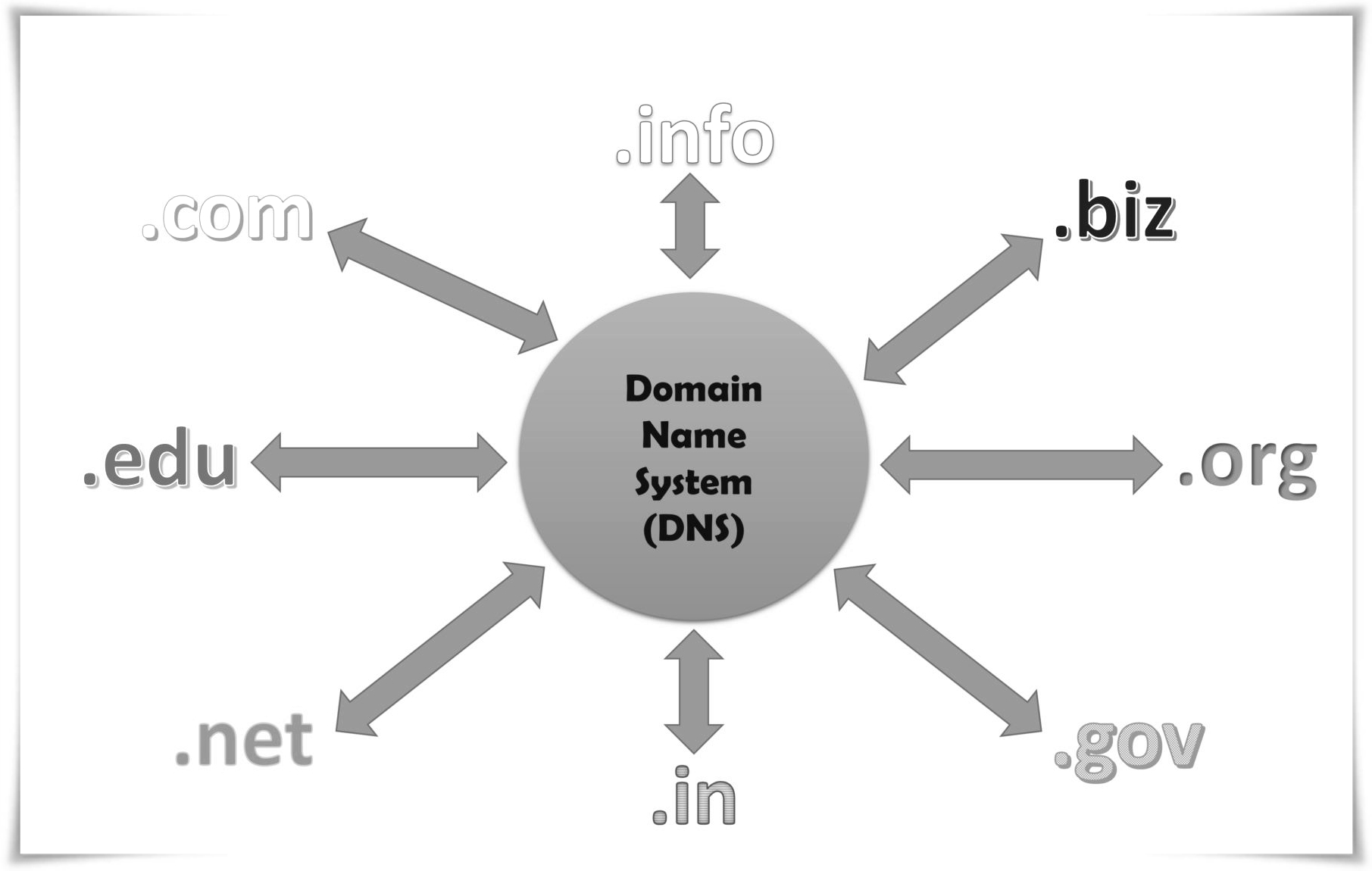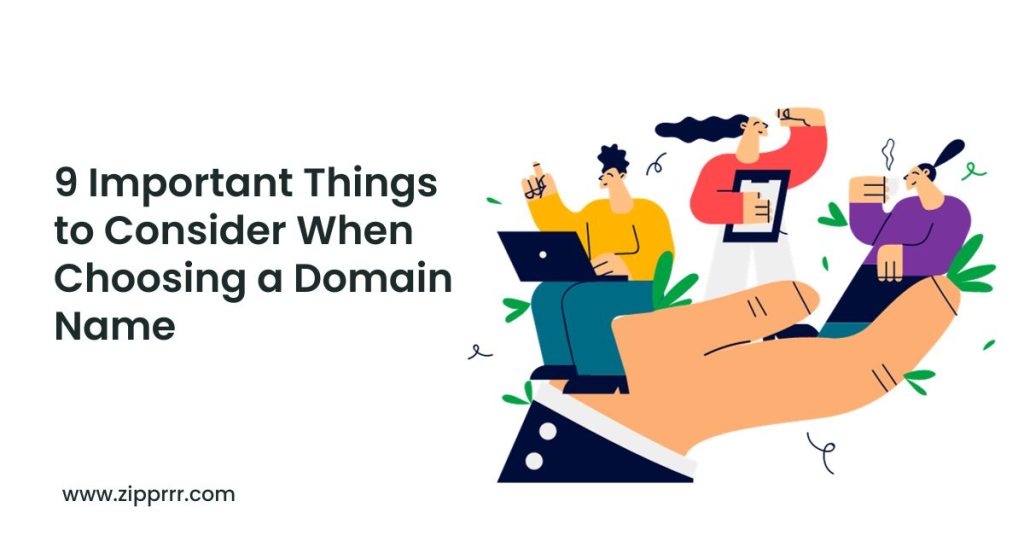Welcome to the captivating world of domain names, where the veil of anonymity is lifted and the digital playground awaits your arrival. As you embark on your online journey, ready to make your mark in the vast expanse of the web, a crucial decision beckons: choosing a domain name.
While seemingly simple, this seemingly humble string of characters carries immense power, shaping the identity and success of your online presence. Navigating this labyrinth of options may seem daunting, but fear not, for we have prepared a guide that unveils 9 important factors to consider when selecting the perfect domain name.
Table of Contents
- 1. Keyword relevance in selection
- 2. Represent brand effectively
- 3. Verify available extensions
- 4. Make simple to remember
- 5. Choose brief domain lengths
- 6. Review costs realistically
- 7. Scalable for changing needs
- 8. Research legal trademarks
- 9. Weigh instinct with facts
- Frequently Asked Questions
- To Wrap It Up

1. Keyword relevance in selection
When it comes to choosing the perfect domain name for your website, keyword relevance is a crucial factor to consider. In today’s digital landscape, search engines play a significant role in driving traffic to your site. By incorporating relevant keywords into your domain name, you can greatly optimize your website’s visibility and increase the chances of attracting your target audience.
Enhanced SEO: A domain name that includes relevant keywords can significantly elevate your website’s search engine optimization (SEO). When users conduct online searches, search engines prioritize websites that match their queries. Including keywords in your domain name increases the likelihood of your website appearing at the top of search engine results, enhancing visibility and driving organic traffic.
Improved User Experience: Selecting a domain name that directly relates to your website’s niche or topic provides users with a clear understanding of what your website offers. This ensures that visitors who land on your site are more likely to find the content they are seeking, enhancing their overall user experience. Having a domain name that aligns with your website’s content fosters trust and credibility among users, encouraging them to spend more time on your site and potentially convert into customers or followers.
Targeted Audience: By incorporating relevant keywords into your domain name, you can target your specific audience more effectively. Choosing keywords that resonate with your target market helps you attract the right kind of traffic. This not only increases the chances of converting visitors into customers but also creates a community of like-minded individuals who are more likely to engage with your website, share your content, and build brand loyalty.
Brand Recognition: Selecting a domain name that incorporates relevant keywords can contribute to building brand recognition. A carefully chosen domain name can become synonymous with your brand and help differentiate your website from competitors. When users repeatedly encounter your domain name in search results or mentioned by other sources, it reinforces your brand’s identity in their minds. This association fosters brand recall and makes it easier for users to find and remember your website among the sea of online content.
Remember, while keyword relevance is essential, it is also crucial to keep your domain name concise, memorable, and easy to spell. Striking the right balance between keyword incorporation and brand uniqueness will help ensure long-term success for your online presence.
2. Represent brand effectively
Effective brand representation is crucial when choosing a domain name for your website. Your domain is the online identity of your brand, so it’s essential to ensure that it accurately reflects and promotes your brand to your target audience. Here are a few important factors to consider to represent your brand effectively through your domain name:
1. Consistency: Your domain name should align with your brand’s overall identity, including your brand name, logo, and tagline. Aim for consistency across all your branding elements to create a cohesive and recognizable image.
2. Relevancy: Ensure that your domain name is relevant to your products, services, or industry. It should give a clear indication of what users can expect when they visit your site. A relevant domain name helps establish trust and credibility among your target audience.
3. Unique and Memorable: Stand out from the crowd by selecting a unique domain name that is catchy, easy to remember, and distinct from your competitors. A memorable domain name increases the likelihood of visitors returning to your site and sharing it with others.
4. Avoid Hyphens and Numbers: Hyphens and numbers can make your domain name confusing and difficult to remember. Try to keep your domain name clean and easy to type without including any unnecessary punctuation or characters.

3. Verify available extensions
When it comes to choosing the perfect domain name for your website, one crucial factor to consider is the available extensions. An extension refers to the letters that appear after the dot in a web address, such as .com, .net, or .org. While .com is the most popular and widely recognized extension, there are several others to explore. Here are some important things to verify when evaluating available extensions for your domain:
1. Industry Alignment: Consider the nature of your website and its target audience. Choose an extension that aligns with your industry to give your website a professional and relevant touch. For example, if you own a tech-related business, you might opt for a .tech extension, or if you run a nonprofit organization, a .org extension may be more fitting.
2. Geographic Relevance: If your website caters to a specific geographical location, using a country-specific extension can enhance your credibility and visibility within that region. For instance, a business targeting customers in the United Kingdom could consider using a .uk extension, while a restaurant in France may benefit from a .fr extension.
3. Brand Consistency: If your brand has already established an online presence with a particular extension, it’s crucial to maintain consistency. This enables your existing audience to easily recognize and remember your website’s URL. However, if your preferred extension is unavailable, you may need to reassess your options to find the next best fit.
4. SEO Implications: While extensions themselves don’t directly impact search engine optimization (SEO), they can indirectly affect your website’s visibility. Generic extensions like .com and .net are generally trusted by users and search engines, while newer or less common extensions might be met with hesitation. Consider how an extension might affect user perception and trust in your website, and evaluate the potential impact on your SEO efforts.
Remember, choosing the right extension for your domain name is just one piece of the puzzle. It’s important to evaluate all aspects, including brand identity, memorability, and usability, to ensure your website stands out and effectively represents your business or organization.
4. Make simple to remember
When it comes to choosing a domain name, simplicity is key. You want your domain to be easy to remember for your audience and potential visitors. A complex and convoluted domain name can easily be forgotten or mistyped. To ensure your domain is simple to remember, keep the following tips in mind:
Firstly, keep it short and sweet. Long and complicated domain names can be a mouthful and difficult to retain. Aim for a domain name that is concise and to the point, preferably under 15 characters. This will make it easier for users to remember and type into their browsers.
Secondly, avoid numbers and hyphens in your domain name. These can cause confusion and make it harder for people to remember. Stick to using alphabets only and ensure your domain name is clear and easy to read. This will make it simpler for users to recall and share your website with others.
Lastly, use keywords or phrases that are relevant to your website or business. Including keywords in your domain name can improve your website’s SEO and make it more appealing to search engines. This can also help users remember your domain when they associate it with the keywords related to your business. Remember, simple and memorable domain names are more likely to attract visitors and boost your online presence.

5. Choose brief domain lengths
When it comes to choosing a domain name, length matters. Opting for a brief domain length can have a significant impact on the success of your website. Short and simple domain names not only make it easier for users to remember, but they also enhance brand recognition and increase memorability. Here are some important considerations to keep in mind when selecting a domain name length.
1. Improved memorability: A short and concise domain name tends to be more memorable than a long and complicated one. A memorable domain name can help users easily recall and revisit your website, reducing the chances of them getting lost in the vast sea of the internet. Aim for brevity to ensure your domain name sticks in the minds of your visitors.
2. Easy to type and share: The shorter your domain name, the easier it is to type and share. In today’s fast-paced digital world, where quick communication is valued, a lengthy domain name can be a hindrance. By keeping your domain name brief, you make it effortless for users to enter it correctly into their browsers and share it with others via word of mouth, email, or social media.
3. Enhanced brand recognition: A brief domain name can contribute to improved brand recognition. Short names have a stronger visual impact and are more likely to catch the eye of potential customers. A concise domain name is easier to display on promotional materials, merchandise, or even when mentioned during media interviews, allowing your brand to be recognized instantly.
4. Cleaner and more professional appearance: A shorter domain name adds to the overall aesthetics of your website. It appears cleaner and more professional, giving the impression of a well-established and trustworthy online presence. Additionally, it allows for better design flexibility when incorporating your domain name into a website logo or header, ensuring a visually appealing and cohesive brand image.
Remember, choosing a brief domain length is just one aspect of creating a successful online presence. It’s important to strike a balance between brevity and descriptive relevance to accurately represent your brand. Take the time to brainstorm and explore different options, considering these factors to make an informed decision that aligns with your goals and vision. By selecting a concise domain name, you’ll be taking a bold step towards making your website memorable and impactful in the online realm.
6. Review costs realistically
When it comes to choosing a domain name, it’s crucial to review the costs associated with it realistically. While grabbing that perfect domain might be tempting, it’s important to consider the financial implications. Here are a few factors to keep in mind:
1. Registration Fees: Most domain registrars charge an annual fee for domain registration. Make sure to compare prices across different providers to get the best deal. Additionally, keep an eye out for any hidden fees that might be tacked on during registration or renewal.
2. Renewal Expenses: Remember, it’s not just the initial cost that matters. Some domains may have higher renewal fees, which can significantly affect your long-term budget. Ensure you understand the renewal rates and factor them into your decision-making process.
3. Premium Domains: Premium domain names may come with a hefty price tag due to their popularity or potential marketing value. While they can be a worthy investment, evaluate whether the benefits outweigh the costs for your specific needs.
4. Additional Services: Some registrars offer additional services like domain privacy protection, SSL certificates, and email hosting, among others. These services may enhance your online presence, but they come at an extra cost. Consider if these add-ons align with your goals and decide accordingly.
By reviewing costs realistically and being mindful of potential expenses, you can make an informed decision when choosing a domain name. Remember, it’s always wise to weigh the financial aspects alongside other important factors such as branding, relevance, and usability. Happy domain hunting!
7. Scalable for changing needs
When selecting a domain name, it is crucial to consider its scalability for changing needs. As your business grows and evolves, so do your requirements. You want a domain name that can adapt and accommodate these changes seamlessly. Whether you expand your product offerings, target new markets, or rebrand, having a scalable domain name ensures that your online presence remains strong throughout.
One aspect to consider is the flexibility in terms of services and features that your domain name can support. As your website expands, you might need to add subdomains or additional pages to cater to different offerings or branches. A domain name that allows for this scalability provides the freedom to adapt your online presence to the ever-changing needs of your business.
Furthermore, scalability also extends to the potential growth in website traffic. A domain name that can handle increased traffic without compromising its performance is essential. Look for a provider that offers robust hosting options and scalable server resources. This way, you can ensure that your website remains accessible and responsive, even during peak periods of high demand.
In conclusion, choosing a scalable domain name is vital for the long-term success of your online presence. It allows your website to grow along with your business, accommodating changes in both services offered and traffic volume. Remember to evaluate the flexibility of your domain name in terms of services, subdomains, and page additions. Additionally, ensure that your hosting provider offers scalability in terms of server resources to maintain optimal performance. By considering scalability, you can future-proof your online presence and avoid significant disruptions during periods of expansion and change.

8. Research legal trademarks
Before finalizing a domain name for your website, it is crucial to conduct thorough research on legal trademarks. This will help you avoid potential legal issues and ensure that your chosen domain name is not infringing on someone else’s intellectual property.
Here are some important points to consider when researching legal trademarks:
1. Check for existing trademarks: Start by checking if there are any registered trademarks that are similar to your desired domain name. Visit the official trademark database or consult with a trademark attorney to ensure your chosen name is unique and not already protected by someone else.
2. Consider trademark classes: Trademarks are typically categorized into different classes based on the goods or services they represent. Ensure that your domain name is not similar to any existing trademarks in the same class or industry as yours. This will help you avoid confusion and potential legal battles in the future.
3. Avoid generic or descriptive terms: Generic or descriptive terms are difficult to trademark and can make it challenging to protect your brand. It is advisable to choose a distinctive domain name that sets you apart from competitors and avoids potential conflicts with existing trademarks.
4. Hire a trademark attorney: If you have concerns about potential trademark conflicts or need expert guidance, it is always a good idea to seek the help of a trademark attorney. They can assist you in conducting comprehensive research, filing for a trademark if necessary, and ensure that you are on the right side of the law.
Remember, conducting thorough research on legal trademarks is an essential step in selecting a domain name. By ensuring your chosen name is unique and not infringing on existing trademarks, you can establish a strong online presence while avoiding costly legal complications down the road.
9. Weigh instinct with facts
When it comes to choosing a domain name for your website, it is crucial to strike the right balance between following your instincts and relying on factual information. Your gut feeling may lead you towards a certain name, but it’s important to validate your intuition with concrete facts. Let’s explore some key aspects to consider as you embark on this important decision-making process.
1. Domain Length: While shorter domain names are often more memorable and user-friendly, they may not always be available. Instead of fixating solely on length, focus on finding a balance that is both concise and meaningful. Long domain names can be cumbersome and prone to typos, making it harder for users to find your website.
2. Keywords: Incorporating relevant keywords into your domain name can positively impact your search engine optimization (SEO) efforts. Include words that resonate with your target audience and reflect the essence of your website. This can increase your chances of ranking higher in search results and attracting the right visitors.
3. Branding: Your domain name is a crucial component of your brand identity. It should align with your brand’s personality, values, and overall message. Consider the emotions and perceptions you want your brand to evoke and try to capture them through your domain name.
4. Extensions: The domain extension, also known as a top-level domain (TLD), plays a significant role in shaping your online presence. While .com is the most common and recognized extension, don’t overlook other options. Extensions like .org, .net, and .co can be just as effective, depending on the nature and purpose of your website. Research what each extension represents and choose one that aligns with your goals.
Remember, finding the perfect domain name is a crucial step in building a successful online presence. By weighing your instincts with factual considerations such as domain length, keywords, branding, and extensions, you can make an informed decision that sets you up for long-term success.
Frequently Asked Questions
Q: Why is choosing the right domain name important for my website?
A: Great question! Your domain name is essentially your website’s digital address, so it’s crucial to select one that represents your brand, is easy to remember, and helps set the tone for your online presence.
Q: What are some key considerations when choosing a domain name?
A: There are several factors to keep in mind. Firstly, it’s important to make it relevant to your website’s purpose. Secondly, consider its length and simplicity, opting for something concise and easy to spell. Additionally, picking a memorable name can boost visibility and encourage return visitors.
Q: Should I prioritize using keywords in my domain name?
A: While including relevant keywords can provide a slight SEO advantage, it’s not a make-or-break factor. Keep in mind that user experience and branding hold greater weight, so choose a domain name that resonates with your audience rather than solely focusing on keywords.
Q: Is it necessary to stick with a “.com” domain extension?
A: While the .com extension is the most recognized and widely used, it’s not the only option. Depending on the nature of your website, you might consider other extensions, like .org for non-profit organizations or .io for tech-related ventures. Ultimately, it’s about finding the best fit for your specific goals.
Q: How important is domain name memorability?
A: Memorability is crucial for a successful online presence. A catchy, easy-to-remember domain name increases the likelihood of repeat visitors and referrals. Aim for something unique and distinct that stands out from competitors, making your website more memorable to users.
Q: Can I change my domain name after launching my website?
A: While it isn’t impossible to change your domain name later on, it can be a complex and potentially costly process. It’s best to choose a domain name you’re confident about upfront to avoid unnecessary hassles down the line.
Q: Should I consider buying a domain name that’s already taken?
A: While purchasing an already registered domain name is possible, it can be expensive, especially if it’s a highly sought-after name. Consider exploring alternative options or brainstorm unique alternatives that align with your brand objectives.
Q: Are hyphens or numbers acceptable in a domain name?
A: Hyphens and numbers can make a domain name appear more cluttered and less professional. It’s generally best to avoid them if possible, as they can create confusion and make your domain harder to remember and type correctly.
Q: How important is trademark infringement in choosing a domain name?
A: Trademark infringement is an issue to be cautious of when selecting your domain name. Conduct thorough research to ensure your chosen name doesn’t infringe on existing trademarks or copyrighted material, as this could result in legal complications.
Remember, choosing the right domain name is an exciting opportunity to craft your online identity, so take your time, be creative, and ensure it accurately represents your brand and appeals to your target audience.
In Conclusion
As we venture to the end of our domain name expedition, it becomes clear that the power to choose a captivating and compelling digital address lies within our hands. Remember, dear readers, that while the vast expanse of the online world may seem infinite, the selection of a domain name requires thoughtful consideration.
As the curtain falls on this article, let us recap the vital elements to be mindful of when embarking on this naming odyssey. First and foremost, comprehend the significance of brand identity and domain synchronicity – for the harmonious coexistence of the two shall reap bountiful rewards. Harness the power of brevity, employing concise names that ignite curiosity and beckon visitors with a siren-like allure.
A journey through the maze of extensions also beckons: traverse territories both generic and regional, selecting the one that best encapsulates your vision, aspirations, and target audience. Don’t underestimate the enchantment of a timeless and memorable domain; let it be a tune that lingers in the minds of all who stumble upon it.
Navigating the treacherous world of trademarks is a mission in itself, but through diligent research and legal acumen, you shall conquer the daunting task. Maintain vigilance over your domain’s SEO potential, for a carefully chosen name can exponentially heighten your visibility in the virtual realm.
Embrace the ever-changing tides of linguistic trends, for what is au courant today may be passé tomorrow. Evoke emotions through ingenious wordplay and masterful phonetics – for the rhythm of your domain should resonate harmoniously with the hearts of all who encounter it.
Lastly, dear readers, remember that in this vast wilderness of domain names, we are but mere pioneers. With unwavering determination and an unwavering eye, mine the depths of this untamed landscape and uncover the gem that will immortalize your vision.
As we bid adieu, bear in mind these nine guiding pillars, for they will serve as your compass through the tempestuous waters of domain name selection. The grand canvas of the internet awaits your masterpiece, dear readers; now, go forth and carve your digital legacy!







